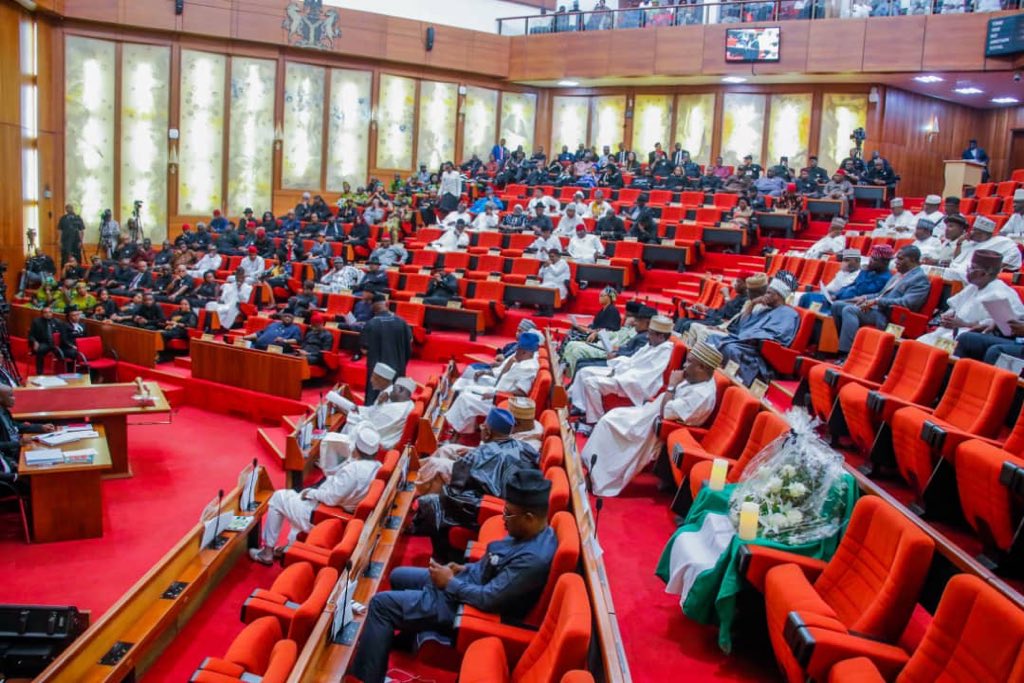
After prolonged debate, the Senate on Thursday threw out a bill which sought to give lawmakers greater control in the funding of constituency projects.
The development comes ahead of the presentation of the 2024 budget to the National Assembly by President Bola Ahmed Tinubu.
Sponsor of the bill, Senator Hussaini Babangida Uba from Jigawa State, argued strongly that there should be an institutional legal framework for the funding of constituency projects of lawmakers, which he believed would rapidly develop the nation.
He argued that the legal framework of constituency project funding, if passed into law, would give lawmakers in the upper and lower legislative chambers greater control.
In the general principles of the bill, Uba noted that lawmakers’ control of constituency projects wasn’t peculiar to Nigeria alone, but existed in other climes, insisting that it’s one of the most effective ways of ensuring equitable distribution of development across the country.
As Senators took turns to speak on the bill, it became obvious that it gained traction, particularly as they canvassed for more money to enable the funding of constituency projects.
First to throw weight behind the bill was Senator Mohammed Monguno from Borno, who recalled that the sum of N100 million was allocated to constituency projects and described the fund as grossly inadequate.
However, Senator Victor Umeh representing Anambra Central Senatorial District, differed when he urged his colleagues to thread with caution, saying that the issue of constituency projects is not within their purview as lawmakers and that it is the duty of the executive.
“Constituency Project has always been a subject of controversy with plenty of misgivings and even misrepresentations,” he said.
The Anambra lawmaker explained that the Constitution of the Federal republic of Nigeria, 1999 may need to be amended, if lawmakers must take hold of constituency projects as proposed in the bill.
Senator Wasiu Eshilokun from Lagos State, while quoting relevant sections of the Constitution, argued that the power of appropriation lies with the legislature, but that of execution of projects lies with the executive, allaying fears that it would breed conflict of responsibilities.
In his submission, ex-Senate President, Ahmad Ibrahim Lawan called for caution, tact and wisdom, saying the issue should be approached through dialogue with the executive arm of government.
“While it is true that on paper lawmakers have the power of the purse, the execution of the project lies in the hands of the executive arm of government through various ministries, departments and agencies that should be lobbied,” Lawan said.
Having considered all sides to the argument, the Senate threw out the bill despite it being popular among the lawmakers on the grounds that the powers it sought to give to the Senate are already guaranteed by the Constitution.


